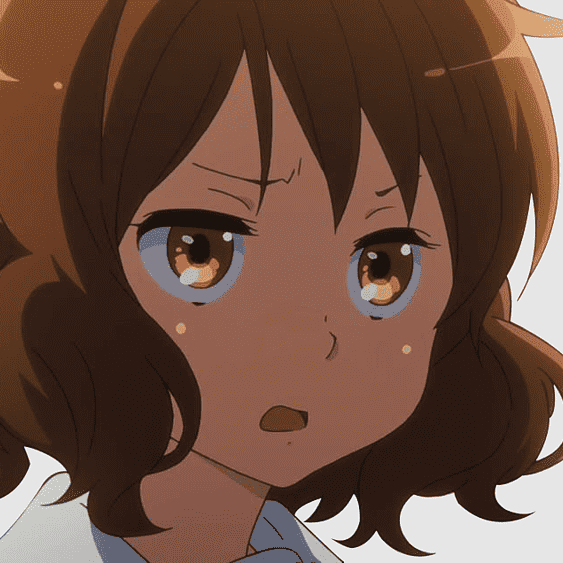皆さん、
ようこそ、これはチャポでの初めての日本語の練習スレ。
このスレ内に何でものことについてを喋ってください。
遠慮失いで! ٩(๑òωó๑)۶
日本語を話しできないでば、それは結構です。英語で、「日本語で○○をどう言ってますか」とか問い掛けます。
では、始めましょうか?
English: Everyone,
Welcome to the first Chapo Japanese practice thread.
Don't hold back, talk about anything you want.
It's fine if you don't speak Japanese, just ask stuff in English, like "How do I say XX in Japanese?"
Then, shall we get started?
For the reading group: 銀河鉄道の夜 (Libgen - Night on the Galactic Railroad - Japanese / English Dual Text)
BTW, I just found this vocaloid song called Red Purge a few days ago about the leftist purge in Japan after WW2. It's surprisingly popular (probably because it sound good and not because people understand them) for a pro-communist song. Can anyone here who's familiar with Japanese history explain the song to me, here a translation for reference
Im very early on in my studying, does anyone have any good resources for beginners? Ive got the basics down but its hard to progress much w/o anything to act as a guide because of how my dumbass brain works. Thank you in advance
I personally recommended anyone who's just starting out or are struggling with grammar to go watch this series on youtube (the voice and the avatar take a bit to get used to). She explain the idea behind the grammar as a consistent, logical thing and not just some collection of random rules and exceptions like in the textbook.
She also has done a lot of videos on how to study Japanese which I recommend watching. The gist of it involve creating for yourself only one core Anki deck, filled with the only most common words that can be used anywhere (because each type of media you consume have it own set of core vocab and it's impossible to have a core vocab that encompass them all) . Then you watch anime with J-sub, pausing each line to translate what being said, adding new words to your Anki deck as you do. After finishing each episode, you cut out the audio file and play it in the background whenever you can. Checkout this series for more details and explanation and the methods to do it .
After studying both Genki and Tae Kim and Heisig, I can say that for me her way of teaching is the best. I'm not even at intermediate level yet though so take this with a pinch of salt and try it out yourself to see if it suit you.
oh!! Ill have to watch that bit by bit when i have the time, it sounds promising. thank you!
Heisig
IMO Heisig is a massive trap. Learning shapes and vague definitions out of any sort of logical order, and without the readings of Kanji is pointless to the extreme.
I know too many people who brag about knowing a thousand Kanji but are completely foiled if you ask them to read a basic greeting out loud.
Yeah, I'll be making a Beginner's how-to for learning Japanese.
Spaced repetition tools are your friend here - Personally, I got my start with the Genki Anki deck, which I'd say in combination with skimming the book is enough to get you to the point where you can really start getting into learning from media.
What sorts of studying have you done so far?
Genki Books / Audio Files:
https://drive.google.com/file/d/0B2xTLCjxLYMgSEJ3S3BCRzhfY1E/view?usp=sharing
Anki Download:
https://apps.ankiweb.net/
Anki-Web (to share progress between devices):
https://ankiweb.net/account/register
Hiragana:
https://ankiweb.net/shared/info/2183294427
Katakana:
https://ankiweb.net/shared/info/779415544
Genki Vocab Deck:
https://ankiweb.net/shared/info/942922371
KanjiDamage deck:
https://ankiweb.net/shared/info/748570187
www.KanjiDamage.com
I've been trying to familiarize myself with hiragana and katakana (along w/ some more common kanji), I'm at a point where I can read simple sentences at the very least, though with a good bit of difficulty. thats mostly a memorization problem though, I think. Really makes language learning difficult for me-
Most of my studying has been me just... brute forcing it tbh??? its a horrible way to learn, but without any proper means it was my best bet
This helps a lot though, thank you again!!
Yeah, Anki will be right up your ally, especially with really learning hiragana and katakana. Practice just consistently recognizing characters at first, then be sure to practice physically writing the characters - took me a while to realize, but they are two different things. Anyways, writing will help you re-enforce your recognition.
ah! yeah thatd probably be best. realized just now that i dont really know how to properly write some characters because of how often i just type em out lmao, totally gonna need to work on that thank you for the advice!
4年前からずっと日本語を勉強していたんですが、私が通っていた授業がコロナのために三月から全部キャンセルになってしまいました。
今年N3を受験してほしかったなのに :angery:
ピーピープープー
そんなことぜんぜんありませんよ!
リアルで私に日本語で喋ったら、そんな誉め言葉言いません、www
でも、ありがとう m( _ _ )m
ひどいよ!よく頑張ってた (๑•̀ㅂ•́)و✧
ぜひ私達ともに勉強します。上手、下手くそかまわらない。今日には昨日比べてもっとできます。それだけで十分だとおもいます。
2年前にHEISIGのANKIのDECKは勉強し終わったけど、怠惰になったから、勉強し続けなかった。今、ほとんどを忘れる。でも、漢字は簡単になるよ。
(Feel free to correct my grammar or the way I say it)
(implied 私は) 2年前にHEISIGのANKI DECK(を)勉強し終わ(て)った(だ)けど、怠惰にな(て)ったから、勉強し続け(て)なかった。今、ほとんどを忘れ(てた)。でも、漢字は簡単にな(て)るよ。
Don't worry, we're all trash at grammer.
Remember there's an implied 私 which is the subject that gets the は.
Anki Deck together is a noun, it may be Hesig's deck, but it's not Anki's Deck, it's an Anki Deck.
The deck is an object that is operated upon by the subject so it is an を.
After that it's just て form. て is mostly a modifier that makes something progressive (i.e. you've been doing something, you are doing something) But it's also something a bit more, it's habitual sort of be.
https://en.m.wikipedia.org/wiki/Habitual_be
If you get up from bed, it's a する. Yes you're doing it, but it's not something that takes place over a significant amount of time, or is thought of as something you habitually do. If you are just studying something it's 勉強する, but if it's something you study then it's a 勉強して. The act of marrying is 結婚する but getting married is 結婚して. I hope that explains it a bit.
I thought Noun (loan, foreign word)+ する is a valid construction and the を is optional in this case.
Yeah I forgot ている (contracted is てる), it's also used to describe the state of a thing after having done something right. So in this case, 忘れた should be 忘れてた (the state I'm in after I forgot something), the same for 終わってた。Though I don't really understand using it for the なる part, when do we use just plain なる and when do we use なてる.
And as for the だ before けど, I thought it only applied if the sentence end in a noun or a na-adjective (which is still a noun).
Thanks a lot for the reply btw.
And as for the だ before けど, I thought it only applied if the sentence end in a noun or a na-adjective (which is still a noun).
You are correct. That correction is wrong.
If you're speaking casually, you can say 終わったんだけど, where ん is a contraction of の, which can also be used. But だ directly after a verb or adjective like that is wrong.Oh, also, なてる is not correct , either. It's なってる. And I'm pretty sure you were correct just using なった, anyways.
The issue was you used は on an object, the anki deck is the object of the sentence, and specifically the one operated on. While the を is optional there, I'd use it because of how long the verb clause is, it provides some clarity.
With て, It's not so much the state of having forgotten something, it's that you forgot over time. If you just forgot something, like your homework or a fact, that's a 忘れた, you can 忘れた a word - but because it was a process of forgetting that took place over a period of time, it's a 忘れてた.
簡単になる is more of a future tense, it will become easier, but because is HAS (i.e. through a process that took time) become easier it is 忘れになってる - it's a present perfect progressive tense.
https://www.ego4u.com/en/cram-up/grammar/present-perfect-progressive
The だ there is what is referred to as a copula, if this was 丁寧語 i.e. more formal Japanese that'd be a です, making it a ですけど. The formal of the sentence is "Idea 1, but Idea 2" the だ 'ends' idea 1. You could take away けど and it would be a stand alone sentence.
In english だ/です would correspond to forms of be. (i.e. is)
Doesn't だ only end a noun clause though, in my sentence it's 勉強し続けなかったけど
Yeah, examining it further, it would just be けど. It's one of those purely technical points, (ん)だ/ですけど, where the ん is not really enunciated is common. Chalk it up to going by "what sounds right".
with respect to Kumikommunism, the なて was a typo of なって. The なってた on 怠惰になってた is optional depending on what whether or not you want to imply it was a process of becoming lazier, or that you just became lazy. But the 勉強し続けてなかった is a definite て
初めまして!九年ぶり日本で留学した。今は使わないから、日本語はあまり思えない。でもね、その時も上手じゃなかった 😅 。間違いがあったら、ごめんね。
飛行機から届きました日、道に迷ったから、なにもわからなくて気づいた。びっくりした!日本語授業で、いつもA学生でした!でも本だけは…ま、日本で住んでいるといつでも日本語を見たり話したりする。ちょうほかのことだよ!本だけより、多いなことを使って練習するのほうがいいと思う。
とにかく、みなさん頑張って!
Translation
Hey, I studied abroad in Japan nine years ago. I don't use it very much now so I don't really remember much Japanese, but then, I was never that good to begin with 😅. Sorry about any mistakes.
On the day I got off the plane, I got lost, and that made me realize that I didn't understand anything at all. It was surprising because I'd always gotten A's in my Japanese classes! But just studying from a book is kinda... well, when you're living in Japan you're always seeing Japanese and speaking in it and doing all that stuff, and it's totally different! Rather than just using a book, I think it's better to use a lot of different things to practice.
Anyway, ganbatty everyone!
Edit: https://jisho.org/ is a pretty cool online dictionary, I may or may not have relied on it while writing this post.
It'd just be Katakana lesson: レッスン三
I assume you're referring to the Kanji learning app わにかに? Since you're reaching the end of their "free" kanji - you can achieve essentially the same thing with an app called "Anki" and a Kanji deck. I used the Kanji Damage deck which goes over the 1800 or so common use Kanji.
See my post here about Anki here
Anki for studying really is a game changer Learning Japanese is difficult, but with the right systems in place it becomes a bit easier.
Your grammer is pretty much perfect, one thing though - while "また" can mean ”also” or ”too", it's more of a refrain - i.e. xxx また, xxx. It's kind of like a "moreover". What you want is も - "でも、も楽しいです" or But it is also fun.
Keep at it!
Yep, tried to go for the simplist 1:1 solution. Though I'd probably say something like: でも、同じときにも楽しいです。
My advice: follow the Japanese quick-start guide from MIA: https://massimmersionapproach.com/table-of-contents/stage-1/jp-quickstart-guide/


